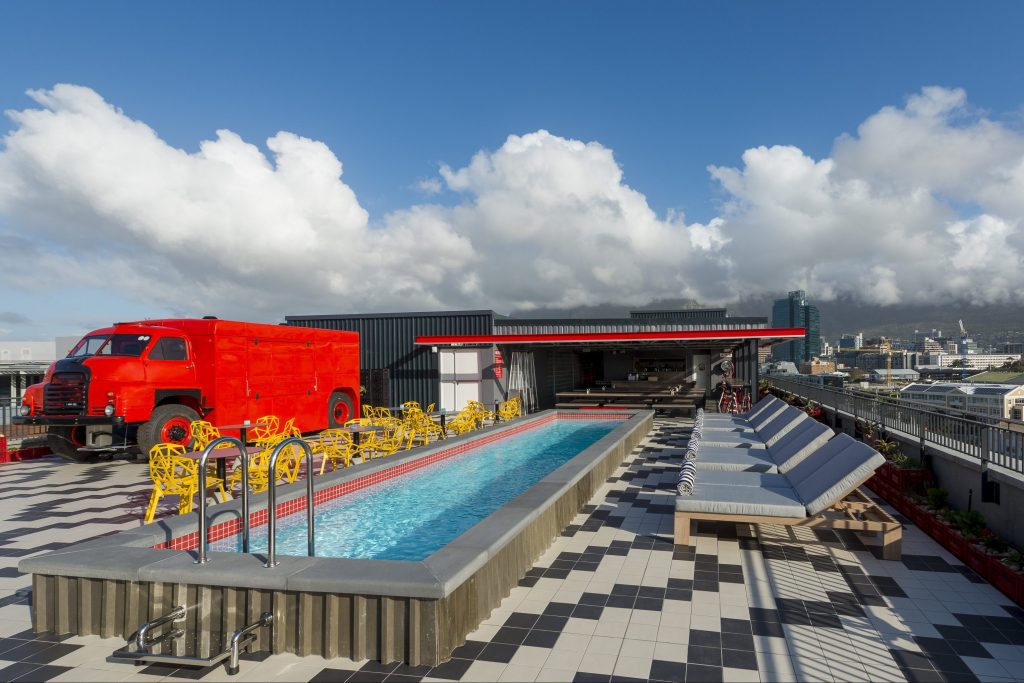Skift Take
Despite its infrastructure challenges and a reputation for red tape, the world’s biggest hotel brands can’t seem to get enough of Africa. With thousands of rooms in the development pipeline, African cities will soon be festooned with a slew of international brands. It’s good news for global travelers and local economies alike.
 Editor’s Note: Gateway is a Skift series featuring first-hand, original stories from our correspondents embedded in cities around the world. The logo reflects where the correspondent is based and not necessarily the article’s focus. Read about the series here.
Editor’s Note: Gateway is a Skift series featuring first-hand, original stories from our correspondents embedded in cities around the world. The logo reflects where the correspondent is based and not necessarily the article’s focus. Read about the series here.
Supply and demand. It’s as simple as that. In Africa right now, the demand for international-standard hotel rooms far outstrips supply. Nine countries in Africa currently have no branded hotels at all, a further eight have just a single chain hotel, and nearly half the countries on the continent have two or fewer international brands to offer.
So little wonder that the world’s leading hotel brands are engaged in a 21st-century scramble for Africa. Across the continent more than 417 hotels are in the development pipeline, adding upwards of 72,000 rooms to hotel inventory from Lagos to Cape Town.
Those figures come from the 2017 Hotel Chain Development Pipelines in Africa report, an annual publication by the respected W Hospitality Group.
“With the exception of South Africa and northern Africa, most cities in Africa are severely under-hoteled,” said Trevor Ward, owner of the Lagos-based consultancy. “In the majority of cities, there is plenty of room for branded hotel supply.”
“For a long time, Africa has lagged behind the rest of the world in hotel development,” added Andrew McLachlan, senior vice president of business development for Africa and the Indian Ocean at Carlson Rezidor Hotel Group. “As more people are looking to reinvest in Africa, there is a glaring demand for quality hotels.”
And global hotel companies are only too happy to step up to the plate.
With its acquisition of Protea Hotels in 2014, and Starwood Hotels in 2016, Marriott International is currently the largest operator in Africa with 140 hotels and over 24,000 rooms. It’s not done yet: The company plans to have 200 hotels and 37,000 rooms open or in the pipeline by 2022, adding another seven countries to its portfolio.
“With economic growth, a rising middle class, and rapid urbanization, the demand for travel and high-quality lodging is growing, providing us with a significant opportunity to enhance our footprint,” said Alex Kyriakidis, Marriott International’s president and managing director for the Middle East and Africa. “Improved connectivity, airlift, and easier regulatory processes will give further impetus to development in Africa.”
With its Hilton Africa Growth Initiative, Hilton has committed $50 million over five years to convert around 100 properties – roughly 20,000 rooms – across Africa into Hilton-branded properties. The focus will be on its upscale DoubleTree by Hilton and Curio Collection by Hilton brands.
Carlson Rezidor has similar ambitiously plans for growth. Since opening its first African hotel in 2000 – a Radisson Blu in Cape Town, South Africa – the company has grown its African portfolio to include 83 hotels and over 17,400 rooms in operation or development across 30 countries.
“In the last three years we’ve opened a hotel in Africa every 60 days,” says McLachlan, adding: “We have just launched a new five-year strategy called Destination 2022, and by the end of 2022 we’d like our African portfolio to sit at 125 hotels.”
Having boots on the ground is key though, and there’s often a disparity between the development pipeline on paper and opening the doors for business.
Lack of financing and construction delays are typically to blame, but with the growing need for new hotels, international contractors are setting up shop to service demand.
“In Africa, there’s huge lack of infrastructure,” McLachlan said. “You might be building a hotel on the continent, but sometimes it’s almost like building on an island. You can’t rely on city water, city power, or local suppliers. You’re building a hotel that is entirely self-sufficient, so the running costs are much higher.”
Red tape and corruption have also traditionally been barriers to development in certain countries, but in many parts of Africa, that climate is changing. According to The World Bank’s ‘Doing Business 2018’ report, which measures the ease of doing business, four countries in Africa – Nigeria, Malawi, Djibouti, and Zambia – are in the top 10 improvers worldwide.
McLachlan also flags Rwanda, Kenya, Cameroon, and Ethiopia as other countries where hotel development is getting easier, as governments offer tax holidays, import duty waivers, and accelerated approvals in a bid to woo international brands.
Easy or not, the prospect of steady demand is enough to keep construction crews busy building new hotels and upgrading existing properties. From South Sudan to Senegal, the scramble for Africa is in full swing.
Have a confidential tip for Skift? Get in touch
Photo credit: The rooftop of the Radisson Red Cape Town, which opened earlier this year in South Africa, is pictured. International hotel brands are trying to expand throughout Africa. Radisson
